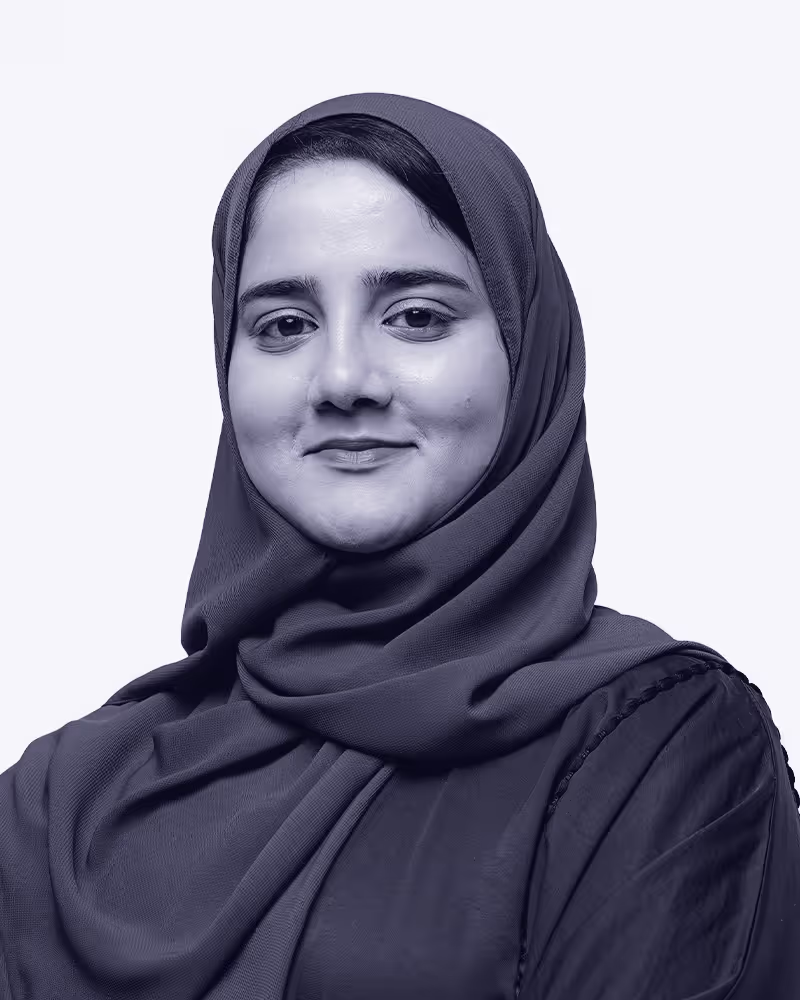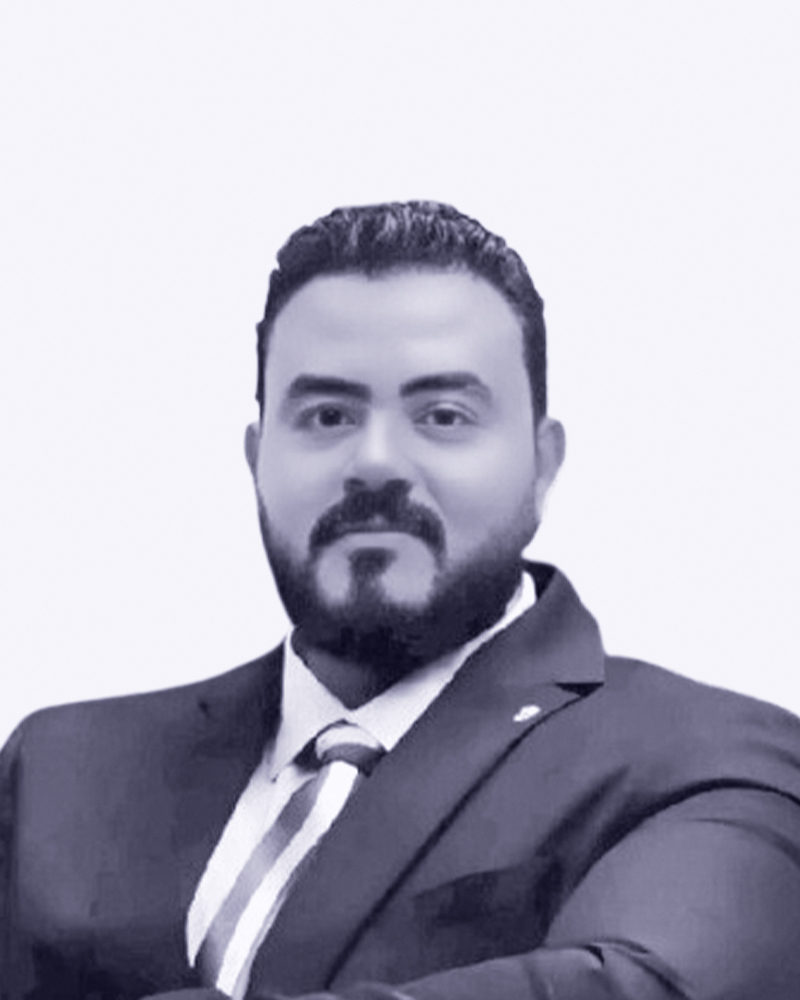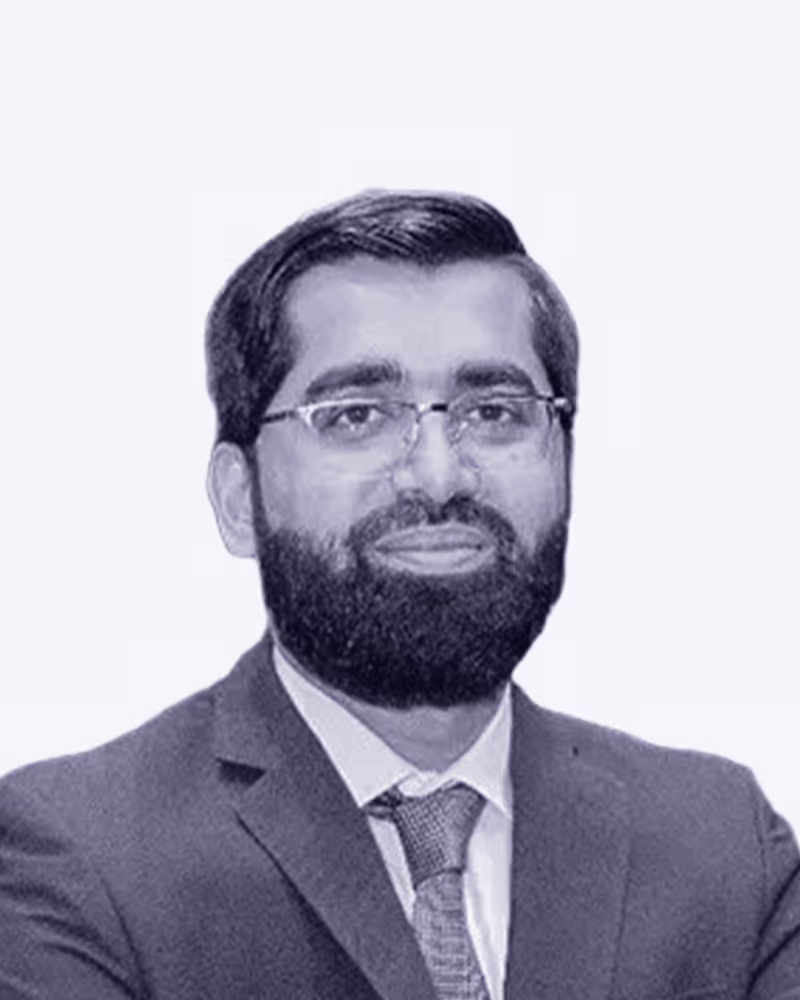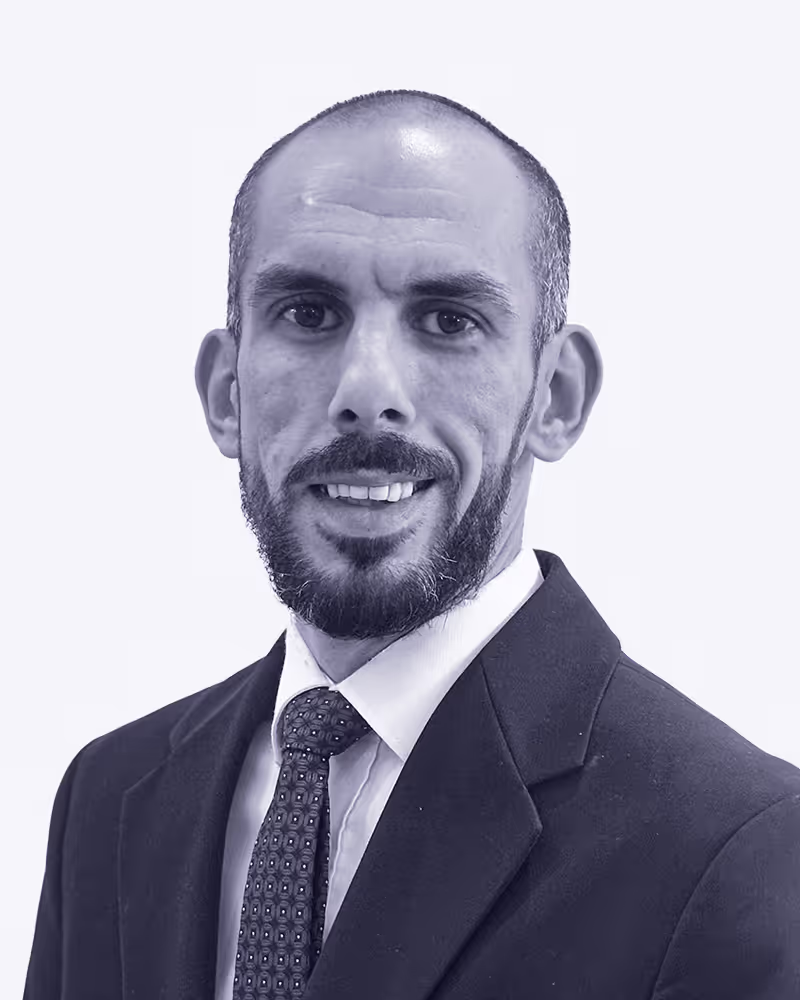Chief Future Officer
MIDDLE EAST
Discover Middle East's fastest-growing community of finance experts. Join us for candid discussions, exclusive events & tons of networking opportunities, where valuable insights await to empower your journey in the future of finance.
Finance Meet-ups:
Physical workshops, social networking gatherings, and live webinars focusing on core finance and accounting topics.
Online Community
An active community on Whatsapp and a dedicated space for exchanging strategies and job opportunities.
Educational Material
Expert interviews, comprehensive articles, and guides prepared to help finance leaders
The Job Vault
A curated job board connecting finance professionals with tailored job opportunities and resources for career growth.
Engage with top finance minds from Middle East's rapidly evolving companies














Events at Alaan
Join the discussions on everything fintech
Chats with Chief Future Officers
Top leaders in the Middle East discussing the future of finance




"Being good at finance isn’t just about creating a solid P&L or looking at your financials. You have to step outside the boundaries of your own department and then ask questions and look at things from a bigger perspective."

You’ve had a non-traditional path into tech and finance leadership. How did it all begin?
About 10 years ago, I thought I’d become a partner at an audit firm. That was the plan.
But my first real opportunity came from a company setting up in Riyadh, no office, just a warehouse. I convinced my dad to let me interview there, and that’s how I joined Wadi.com. It was fast-paced, experimental, and messy in the best way. Within months, I was building full P&Ls, not just crunching numbers.
Later I joined Shipa to build their Saudi operations from scratch, which taught me a lot about legal setup, regulation, and how competitive the market really is.
Now at Squadio, I lead finance and strategy. It’s not just a job, it’s a creative lab. We’re building, evolving, and scaling, and I love that no two weeks look the same.
You stepped into a CFO role after years in operational finance. What changed when the job became more about leadership?
You have to step outside the boundaries of your own department and ask bigger questions. It’s no longer about “Are my numbers right?” It’s about “What are we building, and is it sustainable?”
Leadership, in any function, means you can’t stay in your silo. You have to challenge others, understand the product, and zoom out to the bigger picture.
Finance is often seen as a bottleneck in fast-moving startups. How do you avoid that?
Finance needs to be embedded in your system. I don’t want people constantly going back and forth with the finance team for approvals.
So I make it a point to align early. I’ll sit with sales or other teams and tell them what’s doable and what’s not so they don’t need to ask every time. We also build things into the system itself.
For example, when we automated hiring, we created a hiring projection tracker in ClickUp. If a role was above the approved threshold, it was a no-go. If it was within, you could proceed without asking me. That’s the goal: self-awareness and clarity, not bottlenecks.
You’ve worked closely with investors. What do they care about most that finance teams sometimes miss?
Investors mostly want to focus on sustainability. Not just your burn or your margins or your payback. They care about what value your business brings to this region and whether it will last.
One round of 5 or 10 million should create real value, not just lead to another round. Also, not everything from Silicon Valley applies here. You need a model that works for this market.
When you’re hiring finance talent at a startup, what do you look for?
Exceptional communication skills and curiosity. I want people who will ask questions, not just run numbers. A lot of finance folks prefer to stay in the background. I don’t want that. I want someone who will say, “Let’s book a meeting and understand why this happened.”
A red flag for me is a corporate mindset. In a startup, we might’ve made the process three days ago in a meeting. There’s no manual. You have to be flexible.
I work on an 80–20 rule: 80 percent is good enough. Move on. If you’re obsessed with presentation formats and perfection, you won’t survive in a startup. It’s not about pixel-perfect. It’s about impact.
What’s one tool that genuinely changed your day-to-day?
Power BI. It completely changed how we work. We used to manually pull data just to get one number. Now we have live dashboards where you can drill down as much as you want.
It’s not just for finance. We use it across the business. From open roles to hiring pipelines to profitability forecasts. And it’s live. That changed everything for us.
We also use SIFT Analytics, which integrates with Xero. It helps with consolidation, ratios, and analytics all in one place.
You’ve built ERP, payroll, budgeting, and compliance from scratch. What’s one painful but valuable lesson from that?
You never realize how fast you can scale. And then the system you picked becomes a bottleneck.
It’s fine to start with basic tools. That’s normal in early stages. But don’t over-customize or over-engineer too soon. Always think: can this scale with us?
Pick tools that are easy to use. If it’s too complicated, your team won’t use it properly. Start small, but build with tomorrow in mind.
You’ve lived in Saudi for 20 years. What excites you most about the ecosystem today?
We’re no longer just replicating global products. We’re building for this region from scratch. That’s exciting.
Things are moving fast: serious funding, serious hiring, serious products. And that creates a lot of new challenges too.
For finance teams, the biggest shift is understanding how to explain new business models, even when the regulator doesn’t fully exist yet. You have to help founders and auditors understand how money flows in and out. Education is as important as reporting.
What’s one thing finance professionals need to grow into leadership that they won’t learn from a course?
It’s confidence, honestly.
You can do all the certifications you want, but if you can’t talk to people, build relationships, or start a conversation, you’ll struggle.
You’re not going to walk into a room and say, “Hi, are you raising money?” That’s not how it works. You need to ask, “Where are you from?” “Why are you here?” That’s how relationships start.
So if there’s one course I’d recommend, it’s not a finance course. It’s a communication one.
Bio
Maheen Wahid is a CFO who thrives at the intersection of chaos and creation, where startups are raw, scrappy, and ready to scale. With 12+ years of experience across MENA’s tech scene, she’s built finance functions from zero, restructured pricing engines, and led investor-backed growth at companies like Wadi.com, Shipa Delivery, and Squadio. Maheen is known not just for her financial acumen, but for her ability to bring clarity to uncertainty, build teams with heart, and turn messy beginnings into structured, scalable businesses. An ACCA and data science graduate, she leads with sharp thinking, grounded execution, and a deep belief that finance should enable vision, not just report on it.




“A real CFO isn’t just managing numbers, they’re thinking forward, shaping mindsets, and elevating others. I tell my team: you're the CFO of your domain. Own it, lead it, present it.”

You've had a remarkable 25+ year journey in finance, spanning petroleum, chemicals, pharma, listed companies, joint ventures, and more. Can you walk us through your professional journey?
It’s been 26 years now, though it feels like I’m just getting started. I began my career at ExxonMobil, where I learned the value of being truly utilized and appreciated. That foundation taught me that how you achieve results matters as much as the results themselves. I carried those values into every role I held afterward. I spent the first half of my career in Egypt working with multinationals like Birla Group and Evyap Egypt, gaining experience with ERP systems like SAP and Oracle, establishing SOPs, and earning a Six Sigma Greenbelt. In 2010, I transitioned to Saudi Arabia, joining Ford KSA, followed by a pivotal role at Al-Mahed Group as Group Finance Director, where I prepared the company for an IPO. I later led finance transformation at Spimaco across 14 companies, followed by similar strategic work with Sigma Group and SNASCO Holding. Today, I serve as a Board Member at SNASCO and Group Advisor at Saudi Paper Group. It’s been a rewarding journey that continues to evolve.
How would you describe your approach as a CFO today, especially when managing different business models and ownership structures?
To me, a CFO is not just a Chief Financial Officer, they are a Chief Forward Officer. Our role is to turn historical data into strategic foresight. It’s about being predictive and even prescriptive, like a doctor who diagnoses and prescribes ahead of the problem. I believe in extending that mindset to my team. I tell each team member they are the CFO of their domain, which builds ownership and accountability. For example, when someone once resisted presenting, I pushed them to lead, and they exceeded expectations. That’s how you grow leaders.
You’ve led several finance transformations. What's one common mistake companies make when modernizing their finance systems?
The biggest mistake is confusing digitization with transformation. Digitization is a tool; transformation is a mindset. Many companies believe that adopting an ERP or robotic platform equates to transformation, but if people continue operating with the same old mindset, nothing truly changes. Successful transformation depends on four pillars: mindset, people, process, and systems. Overestimating tools while underestimating people is a common pitfall. Without leadership to align and guide this change, transformation will fall flat.
Transformation can be challenging. How do you keep your team motivated through it?
I believe trust is the key to transformation. And trust comes from human connection. I build this through personal engagement, lunches, casual conversations, and showing genuine interest in my team’s challenges. I sit with them during troubleshooting sessions, not as their CFO, but as a team member. Recently, I encouraged each department to explore AI applications relevant to their work and report back weekly. This involvement empowers them to lead change, not just follow it.
Is there a specific transformation you’re especially proud of?
Yes, at Spimaco, we aligned finance departments across 14 companies in multiple countries in preparation for a public listing. Within a year and two months, we implemented a 360-degree performance system across 37 departments, integrating Power BI with SAP HANA. Each department's strategic initiatives were cascaded into milestones and linked to broader corporate goals. I personally championed Power BI adoption and secured internal buy-in. The transformation not only improved visibility and accountability but also positioned us strongly for the IPO. I later replicated this framework at Sigma Group and SNASCO.
Everyone’s talking about AI in finance. Where do you see real impact today?
There are two areas where AI can drive real impact: cash intelligence and enterprise value forecasting. Cash is critical to any business, and real-time dashboards powered by RPA and integrated with ERPs allow finance leaders to monitor cash positions, receivables, payables, and treasury activities across banks. The second area is using AI to dynamically model and project enterprise value using operational and market data. These insights are invaluable during M&A planning, factory relocations, or growth strategy discussions. AI can move finance from being reactive to truly strategic.
You’ve hired across geographies. What do you look for when building your team?
Mindset, always. Skills can be learned, but mindset is foundational. I look for leadership potential, accountability, and alignment with the company’s values. I test for this through strategic questions rather than just technical assessments. And once they’re onboard, I invest in building them into leaders. At Al-Mahed Group, I even had a KPI called "prepare your successor." Leadership is about elevating others, not protecting your seat.
Vision 2030 is transforming every sector in Saudi. What’s one shift you’re seeing today that wasn’t happening five years ago?
The rise of female leadership. It’s been incredible to witness. At Al-Mahed and other companies, I worked alongside talented Saudi women who were fast learners and deeply committed. In the last couple of years, I’ve seen more female finance directors and strategy heads at conferences and on leadership panels. When given the opportunity and support, they’ve truly flourished. That’s a powerful cultural shift.




The role of finance has really evolved and we really need finance to be a strategic business partner, not just being like a cost center or asset protection.

You’ve worked across multiple industries: healthcare, FMCG, and now commercial finance. How do you adapt your financial strategies when switching sectors?
The role of finance is consistent across industries. We manage cash flow, drive revenue growth, and support profitability. What changes is how those goals are achieved.
In pharma, finance focuses on lifecycle management, patents, compliance, and regulations. In FMCG, it's more commercially driven, with a focus on margins, retail negotiations, and gross-to-net profitability. So while the core remains, the approach shifts based on the industry.
How has your view of financial strategy evolved over time, especially as you’ve moved into senior leadership?
Finance used to be about compliance, protecting assets, preparing financials, and working with banks and auditors. It was more of a cost center.
Today, finance is expected to be a strategic partner. We are copilots to the CEO. We support digital transformation, contribute to commercial growth, help optimize operations, and play a major role in strategy. It's not just about control anymore. It is about enabling growth while staying responsible.
What skills have been most important for you as a finance leader?
Mindset comes first. You need to shift from process orientation to business partnership. From complexity to simplicity. From rules and reports to relationships and real outcomes.Then come the skills: strategic thinking, analysis, business acumen, communication, and curiosity. On the technical side, finance professionals need to understand technology. Not as developers, but enough to use it effectively to solve problems.
Let’s talk about the idea of finance being a “gatekeeper.” Do you agree with that perception?
In some companies, yes. Finance is seen as the function that always says no. No budget. Not compliant. But if we want to be real business partners, we have to help teams get to yes. If marketing asks for a campaign with no budget, instead of just rejecting it, we can work together to build a case. If the ROI is there, it may be worth the spend. We still ensure compliance and ethics. But we also enable smart decision-making.
You’ve been building an audience through your “Dr. FP&A” series on LinkedIn. What inspired that?
I’ve always believed finance doesn't have to be boring. A global CFO once told me, "This is the first time I’ve seen a finance presentation delivered like a marketing guy." That stuck with me.
In leadership meetings, marketing teams bring stories and videos. Finance teams bring spreadsheets. I started a training program on data storytelling to fix that. How to make finance presentations clear, visual, and engaging. “Dr. FP&A” is my way of sharing those ideas.
What’s your perspective on AI and automation in finance?
Technology is essential. It helps us free up time and focus on what matters. I implemented RPA in a previous company and automated 70 percent of the month-end closing. The bot handled data pulls, reports, and emails. AI helps with forecasting, scenario planning, even building presentations. It is embedded in many EPM tools now. Automation and AI allow us to shift from data gathering to delivering insights.
Between startups and large corporations, who has the edge in adopting technologies like AI?
Startups are fast. Less hierarchy, faster decisions. But large companies have the resources and scale to invest in big tools. The real edge comes from mindset. I know a CEO in Saudi running a complex operation, from farm to table, entirely on AI. Not because of budget, but because he believes in technology. Leadership mindset makes the difference.
How do you evaluate and choose the right tools to implement in your organization?
Start with the business problem, don’t follow trends just for the sake of it, then think about scalability. Can this solution grow across markets and teams? Third is ROI. But that’s not just about cost savings. A more motivated, efficient team is also ROI. Happy users, better workflows, and reduced manual work all contribute.
And finally, make sure the tool aligns with your business strategy and internal capabilities.
When hiring for your team, what do you prioritize: experience, education, or something else?
Mindset is the top priority. Everything else can be taught. I look for curiosity, adaptability, and the ability to simplify. Someone who can build relationships, communicate insights, and understand the business. Education and certifications help, but the way someone thinks and collaborates matters more.
What’s your approach to expense management and staying within budget?
It begins with planning. Resources must align with strategy and expected ROI.
Then comes real-time tracking. I ask my team to deduct expenses at the request or PO level, not after the spend happens. This gives better visibility and control from the start.
Do you have real-time visibility into expenses today?
Yes, through our ERP system. If the budget and cost centers are set up correctly, and POs are raised with the right data, we can track in real time. If that setup is missing, it becomes manual and inefficient.
As a CFO, what are the key metrics you track to measure success?
- Revenue growth, year over year or across multi-year trends.
- Profitability, especially gross margin by product or business unit.
- Bottom-line performance.
- And free cash flow. Cash is essential for sustaining and investing in the future.
Bio
Dr. Mohamed ELRouby is a global finance and strategy leader with over 22 years of experience across top multinational corporations including Johnson & Johnson, Novartis, Allergan, Takeda, and Energizer. Throughout his career, he has held senior finance roles across multiple regions, driving strategic transformation and financial excellence on a global scale.
He is a recognized international finance speaker and author, known for his thought leadership in financial planning and corporate strategy. Dr. ELRouby has been featured among the Global Top 200 Power Leaders and was named Best FP&A Leader in the Middle East. He also received the “10 Best CFOs in Asia” award and is an active member of the MEA FP&A Council, appointed by the Association for Financial Professionals (AFP).
He holds several distinguished certifications: CGMA (Chartered Global Management Accountant) from CIMA UK, FPAC (Certified Corporate FP&A Professional) from AFP USA, CSCA (Certified in Strategy and Competitive Analysis) from IMA USA, and OKRP (Certified OKR Practitioner) from the OKR Institute.
Dr. ELRouby also holds an MBA in Finance & Investment from the Arab Academy for Science and Technology, and a Doctorate in Management, with a research focus on Generative AI and the future of finance.




"Digital transformation is more of an enabler than a goal."

In your experience, what steps in the digital transformation roadmap are most important for CFOs to prioritise early on?
I once attended a round table where I heard people killing digital transformation projects because they didn't know what to do. This issue highlights the importance of addressing foundational problems before pursuing transformation.
It's essential to start from the ground up; equipping analysts is vital before diving into data visualisation for senior management. There is still a misunderstanding that digital transformation only involves creating appealing dashboards for the C-suite without first ensuring that analysts have the right tools and data. The foundational database that analysts use must also be the base for the dashboards provided to leadership. Without this comprehensive view, efforts will fail.
I can assure you my team doesn’t spend 10 to 12 hours during closing weeks. We maintain reasonable working hours, and last New Year's, several of my team members enjoyed a barbecue in the desert instead of working. We don't endure the usual chaos during month-end closings. This success is primarily due to six months of hard work refining our processes, which has made closing smoother.
I’m also implementing a self-serve audit model, allowing auditors to access the necessary information directly rather than asking team members. This way, they can get whatever data they need faster without having to ask for it.
You mentioned in your article that finance teams sometimes resist using KPIs from non-financial systems. Could you explain that? What do you think is needed to overcome this resistance?
I could write a lot about the resistance finance teams sometimes have to use KPIs from non-financial systems. It all starts with creating a positive environment for discussion and understanding that different departments, like operations and HR, have their perspectives. We need to be creative enough to recognise these differences and bridge any gaps.
For example, operational teams might focus on order dates, while finance looks at payment dates. If we don’t address these differences, it can lead to confusion. We must be flexible and build a data system that meets everyone’s needs. When team members feel a sense of ownership over the data, they’re more likely to work together. If they think finance only cares about its own reports, they won’t want to cooperate.
A good sign of success is when other teams actively seek our data or ask for access to our databases. This means we’ve created a system that benefits everyone.
Your article* discusses the importance of digital transformation. How do you ensure that your finance team uses technology without feeling overwhelmed?
I believe certain roles are often filled based on experience and seniority rather than actual qualifications. The challenge I faced when I joined emaratech was that my team was worried about the workload and how to manage relationships during transitions. I told them not to worry about those aspects that are outside their realm. It's about leadership, which requires a softer touch. When I came in, I had one principle: I’m responsible for my team’s success and for managing any changes. I communicated to them that they need to give their best effort, and in return, my job is to help them manage the change so they don’t get overwhelmed.
When there are doubts or worries about change, it’s important to lead by example and create a space where they feel comfortable and supported. They need to understand that challenges will arise, but we will adapt and find solutions together. If we can keep the lines of communication open and ensure everyone is involved in the process, they won’t feel overwhelmed by the technology or the transitions we’re implementing.
[*Link to Tamer’s article: https://fpa-trends.com/article/digital-finance-transformation-skills-now]
What do you think is going to be the future of finance in the Middle East?
The only aspect in which the Middle East is different from the rest of the world is the need for tax advisors/consultants and accountants, given that the GCC region is joining the rest of the world in implementing a tax system.
For the rest of the aspects, the pressure is the same given how dynamic the business world is, and the world now is 100% connected. The challenge is high for finance professionals as the demand for a typical "finance controller" will continue to decline. At the same time, there is a need for a financial analyst with the right set of soft skills and data analytics /science & IT knowledge. This should respond to the organisational needs of meaningful reporting, financial KPIs that effectively communicate business results, and financial reports that conform to current standards and regulations.
The future will favour professionals who can integrate IT and operations to connect financial and operational datasets, creating new datasets capable of simulating business scenarios instantly by adjusting key operational elements. Young professionals must prepare for a future that demands these skills and capabilities.
How do you see AI and digital transformation impacting the future of the finance industry?
AI is a step that follows digital transformation. AI will not work unless you have the financial data ready in a way that AI can deal with it as data points.
- In the next five years, AI/ML will eliminate the need for base accounting functions.
- AI will reduce the headcount required for FP&A and other functions.
- AI will add invaluable elements to a treasury function.
All of this begins with leveraging digital transformation technologies, whether they are free or paid. I recommend upskilling the team with the necessary knowledge, as investing in expensive solutions often leads to short-term benefits that may be discarded with changes in senior management. Finance teams should build their capacity to use available free technologies to adapt to the business and internal customer needs.
I'm proud of two use cases. In the first one, I turned 80 hours of manual work into 30 minutes of data model updates and generated $80 million in savings. In the second, I transformed all base reports, making detailed reports, management reports, and ad-hoc analyses easy and usually just a click away. This even enabled a self-service audit relationship.
Bio
Tamer Abomosalam is the Group CFO at emaratech. He is a seasoned global finance professional with over 20 years of experience in financial leadership roles, specialising in transformation, treasury, controlling, and the development of world-class finance functions. He has successfully driven highly visible commercial realignment projects in multinational enterprises, focusing on accelerating growth, reducing costs, and positioning companies to achieve above-trend commercial outcomes.
Tamer is adept at building and leading strong teams, creating a thriving collaborative environment, and simplifying complex situations to deliver consistent, innovative, and effective solutions. In recent roles, he has been pivotal in designing best-practice operating and service delivery models and optimising financial performance by architecting digital and business transformation solutions in multinational and large enterprises.




"With AI becoming more integrated into finance, we're actually seeing more opportunities than challenges."

What do you think is going to be the future of finance in the Middle East in the next five to ten years? What trends do you see emerging?
In the next five to ten years, finance in the Middle East will likely become more strategic and integrated with corporate strategy. We’ll see increased adoption of technology and digital transformation, enhancing decision-making and efficiency. Routine financial functions may be outsourced to low-cost locations, allowing local teams to focus on strategic roles.
With improved compliance and governance practices, such as corporate tax, the region is set to become more transparent and attractive to international investors. Overall, the finance sector’s future looks promising as it adapts to global standards.
How have you been using AI and tech in your team?
Primarily, we have been using AI to bring more automation in finance. We deal with thousands of transactions and data points daily, and BI tools really help us make sense of it all through real-time analytics and trends.
On the accounting side, we use Microsoft Dynamics, which introduces automation in accounting tasks. It automates a lot of tedious tasks, like accounts payable, and even generates general ledger entries automatically. As a result, our team can complete the month's closing faster, saving significant time and allowing more in-depth analysis. Overall, these advancements improve efficiency and enable us to focus more on strategic tasks.
My personal favourite is using AI to review legal contracts and documentation. It has easily reduced my reviewing time by 70-80%.
Given the availability of AI now, what challenges do you think the finance function will face?
With AI becoming more integrated into finance, we're actually seeing more opportunities than challenges. However, one main challenge is ensuring our teams are upskilled to use these new tools effectively.
Adapting to AI also means shifting our mindset from traditional processes to more innovative, data-driven approaches. While some might worry about job displacement, I think it's more about evolving roles.
Service providers might also face challenges, as businesses might rely less on external consultants for things AI can handle in-house. Therefore, everyone needs to adapt and find ways to add value to this new landscape. It's key for us to stay ahead by understanding AI's capabilities and using them to help drive the business forward.
Bio
Sameer Bagul brings over 20 years of leadership experience in online travel and e-commerce, having played a central role in building and expanding Cleartrip and Traveazy across India and the Middle East.
Sameer has been instrumental in the management buyout of a Middle Eastern business from Flipkart and has extensive experience leading digital and AI-driven transformations within financial operations. Under his leadership, the Middle East business grew to over $650 million in sales by the end of 2019.
Prior to his role in Dubai as the CFO of Cleartrip, Sameer led corporate strategy, finance, accounting, business planning, and development. His expertise extends to restructuring organisations for compliance with taxation and regulatory requirements in India and the GCC markets.




"You need a finance professional to launch a company, and they are also the last ones standing when it’s time to close it down. So to an extent, yes, we are gatekeepers."

QnA
What are your thoughts on finance professionals being seen as gatekeepers in finance for decision-making in other departments?
We are certainly gatekeepers, but we also play the role of enablers, supporting other departments to achieve their goals. Finance is essential in any organisation; you need a finance professional to launch a company, and they are usually the last to leave when it closes.
While being a gatekeeper is important, it is only one part of our role. I take pride in this responsibility, but we also have a broader mission to empower the business to thrive.
You oversee 15 companies across various sectors. How do you balance the unique needs of each sector while ensuring that the overall financial strategy remains aligned?
The challenges are unique across the sectors. For example, education has a completely different set of challenges compared to engineering and MEP, which have their own distinct difficulties. We have centralised the financial processes, and I have teams in different locations and companies, as we are spread across Abu Dhabi and Al Ain.
The key is having a very good team around me. I have about 30 to 32 members looking after the entire operations across various industries. I ensure that the teams are cross-trained so that those in education understand what’s happening in MEP and those in MEP have insights into manufacturing or the factories. This 360-degree understanding of our various companies is crucial in managing their different needs while keeping our overall financial strategy aligned.
How are you using AI or other digital tools in your work? What potential do you see for these technologies in finance?
The potential for digital transformation in finance is huge. We have seen a significant evolution from spreadsheets and manual processes to sophisticated ERP systems.
When I joined, we were using Tally, a basic accounting software, but we successfully migrated to SAP B1 and Focus based on the specific needs of each industry. Rather than using a single ERP system for all companies, we use tailored solutions, such as a digital platform in our schools that manages both financial data and other educational requirements.
This transformation has been gradual yet impactful. Our initial move from Tally to a more advanced ERP was just the beginning. We are now in discussions with JDOCS to automate our current manual forecasting and budgeting processes, which will enhance our capabilities with predictive analysis. While the transition may be slow, it is steadily moving in a positive direction.
What trends are you seeing in the finance space in the MENA region, and how do you think they'll shape the future of finance here?
I see a significant focus on AI and sustainability, especially with the issuance of green bonds from Masdar and FAB. We're heading in the right direction, with AI becoming an integral part of finance and sustainability being incorporated into financial strategies.
However, we need some regulations in place. For AI to succeed, it also needs to be regulated effectively. It’s high time the UAE government steps up to provide guidelines for artificial intelligence to ensure its responsible integration into our financial systems.
Bio
Zaheer currently serves as the Finance Director at Dhafir Holdings LLC, where he manages the financial operations of 15 diverse companies across sectors such as Education, Engineering, MEP, Hospitality, HR Services, and Manufacturing. Over the years, he has played a key role in securing more than AED 100 million in project financing, streamlining cash flows, and driving sustainable growth.
In addition to his financial leadership, Zaheer plays an active role in Learning and development initiatives, leading ISO and UAE Tax compliance sessions. He also advises the Chairman on corporate ventures and personal investments, ensuring strategic alignment and growth across operations.
Zaheer is committed to driving innovation at the intersection of finance, AI, and digital transformation, enabling Dhafir Holdings to stay ahead in an ever-changing competitive landscape.
Guides to fast track your finance
Well-researched guides to help finance leaders in the UAE
Join the Community
Shape the future of finance. Engage with top leaders in the finance industry and become a part of the Chief Future Officer Community.









.avif)





.avif)












